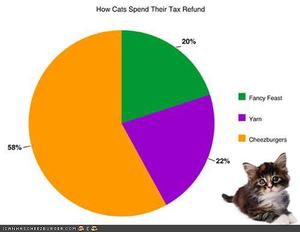Explore Small Business Finance Topics
Discover our most popular topics for Canadian solopreneurs and small business owners. From income tax and GST/HST to QuickBooks tutorials and managing your business finances, these guides are designed to help you move from financial uncertainty to financial confidence.
Click on any topic and scroll down to see related articles.
📑Canadian Income Tax
Guidance on filing and planning your Canadian taxes, from T1 and T2 returns to instalments
📊Managing Business Finances
From cash flow to pricing and metrics — learn to manage your business finances with confidence.
🏢 Canadian Business Structure
Should you incorporate? Stay informed on sole proprietorships, corporations, and registrations.
💰 GST/HST & QST
Understand how to register, file, and maximize input tax credits while avoiding common mistakes.
🧾 Guides and Tutorials
Practical accounting processes like reconciliations, journal entries, and reporting.
📝 Deductions & Expenses
Learn which expenses are CRA deductible and how to track them for maximum tax savings.
Quebec Taxes & Business
QST, Revenu Québec filings, Quebec payroll, and provincial rules every entrepreneur should know.
👤 Paying Yourself
Salary vs dividends, management fees, and how to pay yourself from your corporation or small business.
💻 QuickBooks Online & Tools
Tutorials, guides and time-saving tips for using QuickBooks Online effectively.
🏦 Money & Personal Finance
Personal finance strategies for entrepreneurs, from RRSPs to saving for taxes.

The Importance of Breakeven Analysis for Business Owners
When embarking on your new business venture, one of the first and most important concepts that you will be introduced to is break-even analysis which, very simply, is the amount of revenues you need to generate to cover your direct and indirect expenses. A good grasp of this is essential for business owners since even businesses with significant sales revenues can incur losses if they are not able to cover their costs. While break even analysis tends to be used more for businesses that sell physical products, it can also help to the determine the price for services

24 Cost Effective Ways to Promote Your Small Business
After thinking long and hard you have decided that is time to launch your own business. You have a great product or service, you’ve come up with a compelling business name, all the paperwork has been filed and you have picked out the perfect location (or setup a snazzy new home office). All pieces are in place for your new independent life as a business owner. And then you realize that nobody except your spouse, family members and possibly your cat knows about your new venture. So, how do you bring your fabulous new product or service to your target market's attention? One way is to use the “build it and they will come” approach. This is usually not particularly effective (even Google, who historically launches products with little fanfare, could benefit from a little more marketing). The other, more effective approach is to get out there and promote your business. Of course in the initial stages, marketing budgets tend to be minuscule. On the other hand, many new business owners have time on their hands, while they wait to be deluged by orders. Below is a list of 24 cost effective ways to promote your small business:

What Is a Capital Dividend and How Does It Benefit Your Corporation
When an individual sells some property, investments or other assets (perhaps you have a Picasso lying around that's appreciated in value), only 50% of the gain is subject to tax. For example if you sell a rental property and realize a gain, after brokerage and expenses, of $100,000, only $50,000 will be taxable. (The actual tax that you pay will depend on your marginal tax rate at the time). The other 50% of the capital gain is a non taxable gain. For a corporation, however, this distinction is a little more complex. In order to allow corporations the same benefit as individuals with respect to capital gains and losses, the 50% non taxable portion of the gain on a corporate capital transaction is allocated to what is referred to as a Capital Dividend Account or CDA. The balance in the CDA, which is a cumulative balance over the lifetime of a corporation, is then available to the shareholders on a tax free basis.

Investment Strategies for Your Incorporated Small Business
One of the benefits of having an incorporated small business is that after paying yourself a salary or dividend any excess funds can be invested directly through the corporation. Since small businesses often cannot predict how their business will perform from year to year, the ability to retain funds in the corporation allows for a cushion to smooth out fluctuations in earnings which can then be paid out in lower performing years. By keeping the funds in the corporation, the business is able to defer tax since usually the small business tax rate is lower than the personal tax rate. Some points to consider:

How to Set Up a Small Business Accounting System
Many small business owners (myself included) tend to focus on the more glamourous aspects of their business eg. sales, marketing and product/service development. As a result, accounting often does not get the attention it deserves. In addition to the perception that an accounting system does not necessarily add value, it can also be a little intimidating. However, there are numerous benefits to setting up an accounting system and it can actually be fairly straightforward especially if you have some help with setting it up. A good accounting software tends to handle most of the complexity of accounting as long as the data is compiled and entered accurately.

Accounting for Non Accountants : Debit, Credits and Financial Statements
When people hear the term accounting, there is an involuntary reaction whereby the comprehension centres (the medical term) of their brains tend to shut down, and sleep mode is activated. This is unfortunate, as accounting, especially to a small business owner, can actually be quite interesting. It is one of the primary tools by which business owners and other interested parties can gage the success of their business, as well as identify areas that require attention andneed improvement. To understand accounting, business owners need to have a basic understanding of how it works (debits and credits) and it's results (financial statements), explained below:

Are you Ready to Make the Transition to Self-Employment
There are many of to whom the promise of being one’s own boss as a self employed business owner seems extremely appealing (particularly if have an extensive set of "leisure"wear). You might crave the feeling of accomplishment that is no longer possible at your current place of employment or you seek greater flexibility and love the idea of working from home. Perhaps you feel that you are not being compensated adequately for your skills or the value that you add to your organization. Or you simply might find yourself bored and uninspired, scouring social media sites for hours on end, and realize that you need a change of pace.

Understanding Payroll Deductions: Personal Income Tax Rates, CPP/QPP, EI and Basic Exemption
The automation of the tax preparation and filing process has been a boon to individuals and tax preparers alike. Gone are the days of struggling to find the right box on the return, adding everything up 5 times and still getting different results, and hoping that the CRA can read your chicken scrawl. Present day tax software not only guides you through every step of the process, it also helps to optimize your allocations thereby reducing your taxes payable. There is however at least one downside to automation: Since we are more removed from the actual calculations, our understanding of our tax situation is somewhat diminished. We have an idea of what we expect to pay, which we can see every week on our paycheques (or for self employed individuals, the breathtaking moment when we see the final result on our tax return), but often we are not really sure how these amounts are derived. Below is a discussion of the tax rates, deductions and maximums to improve our comprehension of this somewhat complex topic:

Why an Understanding of Fixed Vs Variable Costs Is Important for Small Business Profitability
One of the burdens of being a business owner is that you have to develop an understanding of accounting terminology. This might seem sleep inducing and potentially unnecessary, particularly if you have an accountant, however being able to distinguish between fixed and variable costs is actually key to better financial insights into your business and can influence how you determine pricing, help you understand how much you need to sell to start turning a profit and contribute to better cash flow reporting. Additionally it can actually be quite interesting and easy to grasp once you are able to see how it applies to your business.

4 Metrics to Help Improve Your Small Business Cash Flow
n a recent study by TD Bank Financial Group it was determined that one of the primary challenges facing small business was cash flow (The other two were managing clients and government red tape). This probably comes as no surprise to most small business owners, especially in the early stages. The simple answer to this problem would be a limitless source of cash. Since this is usually not possible, we need to do the next best thing: analyze our cash flow requirements and find the most cost effective and easily available solution for any shortfalls. Even the most successful business can find itself shutting its doors if it is not able to manage it's cash flow needs.
Below are 4 financial metrics, which if understood and monitored regularly, can actually help improve your business' cash flow:

Quebec Parental Benefits for Self Employed Workers
In Canada parental benefits are administered by Service Canada. Since they fall under the EI program, self employed workers must opt in tothe EI plan for self employed individuals to receive benefits. In Quebec however, unlike the rest of Canada (a common theme with Quebec), parental benefits are administered by the Quebec Parental Insurance Plan (QPIP), which does not specifically require opt in. Instead all workers in Quebec whether self employed or employees are required to pay premiums, based (similar to QPP) on their insurable earnings. For the self employed, premiums are payable at a rate of 0.86% upto maximum insurable earnings of $62,000, and are reflected in your annual tax return. As such all workers in Quebec are eligible for Parental Benefits.

The William Shatner Guide to Business Diversification
I recently spent “an evening with William Shatner” in Montreal , courtesy of a Groupon deal which offered tickets at less than half of the face price. Not being a trekkie or a rabid fan, I was not intimately familiar with his body of work. I had however seen enough of him to know that he was a funny and charismatic man, so I was interested to see what an “evening” with him would entail.
The show, which was 3 hours long (far exceeding my expectations) had the 80 year old Shatner recounting carefully selected stories about his past, while an interviewer occasionally prodded and guided him. Mr. Shatner did not disappoint – he was self-deprecating, eloquent and entertaining. And, while the stories were meant to reflect positively on his life, his career and choices were also indicative of an extremely ambitious individual who had spent a lifetime seizing opportunities. The results of his attitude of saying “Yes”, which he is trying to inspire in others through his show and latest book "Shatner Rules", have contributed to a fascinating, multi-faceted career and, perhaps unexpectedly, have led to a very diverse set of properties and holdings, some of which include:

What to Do When your Tax Obligations are Overdue

The Many Hats of Self Employment

Being self employed comes with many benefits. You can sleep in, work in your pyjamas and go shopping in the middle of the day. You no longer have to report to a boss who doesn't really understand what you do or deal with mindless workplace politics. It all sounds wonderful, but unfortunately there are also many challenges. Small business owners have to deal with uncertainty and risk. They need to be disciplined and deal with the many demands that being self employed can impose upon us. In the early stages of self employment, most of us have to take on the responsiblity of fulfilling the administrative functions that you find in a more established business. Some of the skills that you need to develop are:

What Happened to Quebec Property Tax Refund?/ Preparing the RL31 and the solidarity tax credit
UPDATE: Beginning with the year ended December 31, 2015 landlords are required to provide tenants with an RL 31 slip which indicates the name of the tenant, the number of tenants at a particular address as well as the address of the tenant. Each individual listed on the lease must be issued an RL 31. Deadline for filing the form is February 28th following the year of residence and is only issued to tenants living at a particular dwelling December 31, 2019. The forms can be filed online through Revenue Quebec and is a fairly straightforward process. Failure to file the form by the landlord can result in a penalty. The form is then required to be used by the tenant to claim the portion of the solidarity tax credit relating to residence.
For Quebec taxpayers who have been trying to locate their RL-4 slips, the slip that your landlord usually provides, or the part on the tax forms or software where you would enter your property taxes (Schedule B), be advised that as of 2011, that this is no longer a specific tax credit. Prior to 2011, both property owners and renters could claim a portion of property taxes paid. This reduced income taxes payable for taxpayers whose total family income was under approximately $50k
